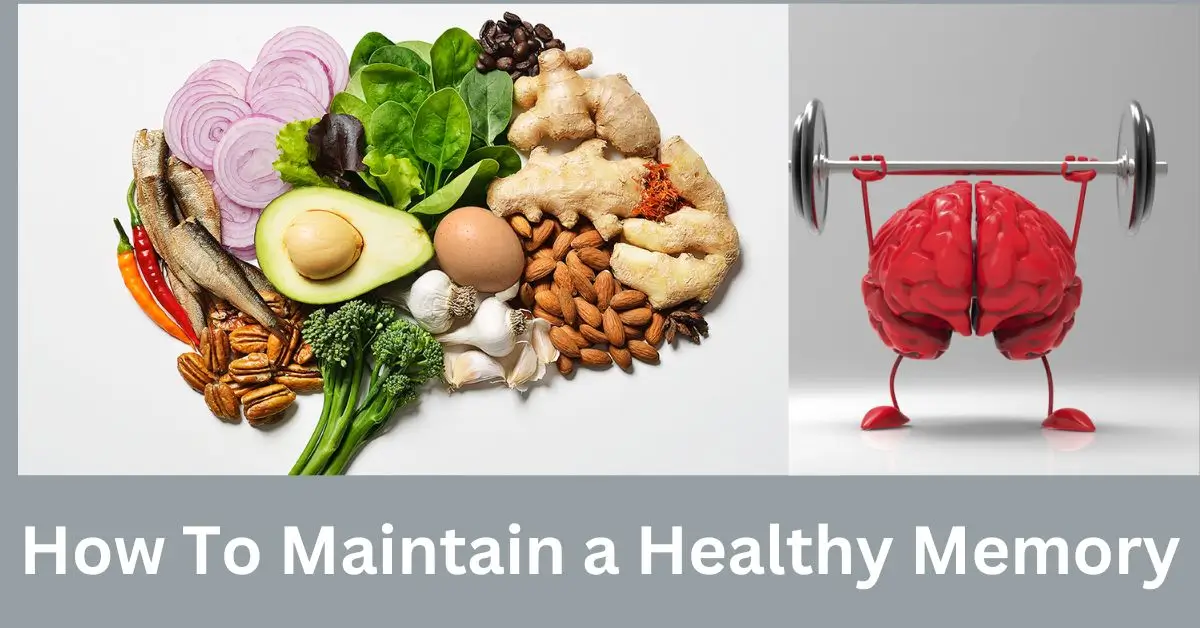In this Article;
• What You Need to Do to Maintain a Healthy Memory
• Understanding Memory
• Aging and Memory
• Practical Tips for Maintaining a Healthy Memory
• Cognitive Training and Memory Enhancement
• When to Seek Professional Help
Health and Wellness – How To Maintain a Healthy Memory
A sharp memory is a precious asset that allows us to navigate through life, learn, and cherish our experiences. As we age, many fear the decline of cognitive functions, including memory.
However, it’s crucial to understand that memory health can be maintained and even improved with the right habits and lifestyle choices.
In this article, we’ll delve into the science of memory, explore factors that impact it, and provide practical advice on what you need to do to maintain a healthy memory.
Understanding Memory
Memory is a complex cognitive function involving the encoding, storage, and retrieval of information. It is classified into different types, including short-term memory (working memory), long-term memory, and sensory memory.
The Hippocampus and Memory
The hippocampus, a region in the brain, plays a crucial role in memory formation and consolidation. It helps transform short-term memories into long-term ones.
Aging and Memory
As we age, cognitive functions, including memory, naturally decline. However, this decline can be slowed and mitigated through various strategies.
1. Sleep and Memory
Adequate sleep is essential for memory consolidation. Sleep deprivation can impair memory recall and hinder learning processes.
2. Nutrition and Memory
A balanced diet rich in antioxidants, omega-3 fatty acids, and nutrients like vitamin E and vitamin B is beneficial for memory health. These nutrients protect brain cells and support cognitive functions.
3. Physical Activity and Memory
Regular physical exercise improves blood flow to the brain, reduces the risk of cognitive decline, and enhances memory.
4. Stress and Memory
Chronic stress can impair memory and increase the risk of conditions like Alzheimer’s disease. Stress management techniques, such as mindfulness and relaxation exercises, can be beneficial.
5. Mental Stimulation
Engaging in mentally stimulating activities, such as puzzles, reading, and learning new skills, can help maintain memory function.
Practical Tips for Maintaining a Healthy Memory
1. Stay Physically Active
Regular physical activity improves blood circulation, oxygenates the brain, and supports the growth of new brain cells. Set a weekly goal of 150 minutes or more of moderate aerobic activity.
2. Eat a Brain-Boosting Diet
Incorporate brain-boosting foods into your diet, such as blueberries, fatty fish (salmon, mackerel), nuts, leafy greens, and whole grains. These foods are rich in antioxidants, omega-3 fatty acids, and other nutrients that support cognitive health.
3. Prioritize Quality Sleep
Create a sleep-friendly environment and establish a consistent sleep schedule. To give your brain time to organize memories, ensure you have up to 7-9 hours of good sleep each night.
4. Manage Stress
Practice stress-reduction techniques such as meditation, yoga, deep breathing exercises, or progressive muscle relaxation to manage stress effectively.
5. Stay Socially Connected
Maintaining social connections and engaging in meaningful conversations and activities can stimulate your brain and support memory health.
6. Mental Stimulation
Challenge your brain with puzzles, crossword puzzles, Sudoku, chess, or learning a new language or musical instrument. These activities promote mental agility and memory retention.
7. Stay Hydrated
Dehydration can impair cognitive function, so drink enough water throughout the day to keep your brain hydrated and functioning optimally.
8. Limit Alcohol and Caffeine
Drinking too much alcohol can harm one’s memory and cognitive abilities. While moderate caffeine intake can have cognitive benefits, excessive caffeine can lead to restlessness and sleep disturbances.
9. Quit Smoking
Smoking has a detrimental effect on memory and cognitive function. Quitting smoking can lead to significant improvements in brain health.
10. Manage Chronic Conditions
Proactively manage chronic conditions like hypertension, diabetes, and high cholesterol, as they can affect memory. Make sure you follow the prescriptions and dietary advice given to you by your doctor.
11. Stay Organized
Use tools like calendars, planners, or smartphone apps to stay organized and manage daily tasks effectively. This can reduce cognitive load and enhance memory.
Cognitive Training and Memory Enhancement
- Cognitive training and memory enhancement techniques encompass a wide range of strategies and activities designed to improve various aspects of cognitive function, including memory. Here are some types of cognitive training and memory enhancement methods:
Mnemonic Devices: Mnemonics are memory aids that help you remember information through patterns or associations. Examples include acronyms, visualization techniques, and the method of loci.
Brain-Training Apps and Games: There are many apps and games designed to stimulate cognitive functions such as memory, attention, and problem-solving. Popular examples include Lumosity and Elevate.
Mental Exercises: Engaging in mentally stimulating activities like puzzles (e.g., crosswords, Sudoku), chess, and brainteasers can help improve memory and cognitive abilities.
Memory Strategies: Learning and practicing memory strategies like chunking (breaking information into smaller groups), spaced repetition (reviewing information at increasing intervals), and keyword mnemonics.
Neurofeedback: This technique involves monitoring brain activity and providing feedback to help individuals learn to regulate their brain function better, potentially improving memory and cognitive skills.
Brain-Boosting Supplements: Some people use supplements like Ginkgo Biloba, Bacopa Monnieri, or Omega-3 fatty acids to support cognitive function, but it’s essential to consult with a healthcare professional before using these supplements.
Prescription Medications: In some cases, doctors may prescribe medications like cholinesterase inhibitors for memory enhancement in conditions like Alzheimer’s disease.
When to Seek Professional Help
- If you experience significant memory problems or cognitive decline that interferes with daily life, it’s essential to seek medical advice. These could be early signs of conditions like Alzheimer’s disease or dementia.
Maintaining a healthy memory is a lifelong journey that requires dedication and a holistic approach to health and well-being. - By understanding the factors that impact memory, adopting healthy lifestyle habits, and staying mentally and physically active, you can nurture your mind and promote cognitive vitality throughout your life.
- Remember that your brain, like any other part of your body, benefits from care, attention, and proper nourishment. With the right practices, you can ensure that your memory remains sharp and your cognitive abilities remain strong.






